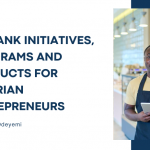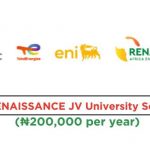Surayyah Ahmad, a two-time cofounder and Northern Nigerian entrepreneur, has launched Sabou Capital, a new SME-focused investment fund designed to address the chronic funding shortfall for small and growing businesses across Anglophone and Francophone Africa. The fund plans to invest between $350,000 and $1.5 million in 25 high-potential, late pre-seed to Series A enterprises operating in agriculture, agro-processing, renewable energy, climate, logistics, and mobility.
The name Sabou—a stylised blend of the Hausa word “Sabo” meaning rebirth or renaissance, with a French twist—reflects the fund’s commitment to revitalising businesses that are often overlooked by traditional venture capital. With a distinct “micro-private equity” model, Sabou Capital seeks to back SMEs that may not fit the high-growth VC blueprint but show clear potential for scale and long-term impact.
Unlike traditional VC funds, which chase high-risk, high-return investments in digital startups, Sabou is taking a pragmatic route—targeting businesses that use technology to boost operations without necessarily being tech-driven. Ahmad explained, “We’re looking at SMEs with growth potential—not necessarily VC-scale—but that have unmet demand and can leverage funding and technical support to grow.”
Sabou’s strategy emerged from Ahmad’s experience at Aduna Capital, which she co-founded. After a divergence in vision at Aduna—now repositioned as an angel investor group focused on Northern Nigeria—she launched Sabou to pursue a wider mission across Nigeria, Senegal, and Côte d’Ivoire, with an eye on secondary cities and underserved markets.
The fund’s expected return on investment is a conservative 2-3x, aligned with the 3-5x private equity range—far from the 10x returns typically targeted by VC firms. This model pits Sabou in the same arena as firms like Aruwa Capital, Afrinvest, and Catalyst Fund, but with a more grassroots, SME-driven approach.
“Most African companies are SMEs. Very few fit the VC-backed startup definition,” Ahmad said, arguing for a more realistic model tailored to the continent’s economic reality. “The focus on chasing unicorns means most investors are funding the same companies over and over.”
Sabou is also embracing a gender-lens investment strategy, prioritizing women-led enterprises. “For every dollar invested in a woman, the return is 2X,” Ahmad noted. “But women face far greater barriers to funding—they often lack the networks and visibility to attract investors.”
Ahmad’s personal journey fuels this mission. As a Northern Nigerian SME founder, she struggled to raise capital due to her inability to travel to Lagos, the country’s financial hub. “I ended up raising from a family office in the North and selling the company earlier than I wanted,” she said.
To prevent such outcomes for other entrepreneurs, Sabou Capital plans to offer robust technical assistance to ensure its portfolio companies have sound corporate governance, financial controls, and operational systems in place before any capital is deployed.
Supporting this effort is Christian Amouo, a private equity expert with experience in Francophone markets, who joins as General Partner. Amouo previously ran a fund in Cameroon, where he invested in four companies, three of which are still in operation.
While Nigeria remains a core market, Sabou is hedging against economic volatility by expanding into Senegal and Côte d’Ivoire, which boast stronger growth prospects and more stable, Euro-pegged currencies. “With Nigeria facing high inflation and devaluation, we’re leveraging our team’s regional expertise to manage risk,” Ahmad said.
Sabou Capital plans to begin fundraising officially in July with a roadshow. With 20 SMEs already in its pipeline, the firm expects to select two or three for its initial investment round.
“Our goal is to scale this model across West and Central Africa,” Ahmad said. “We’re not just looking for quick exits—we want to build companies that grow into large enterprises, ready for larger private equity backing or acquisition.”










